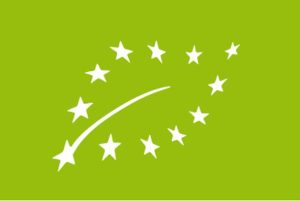how can we help you?
Contact us at the A CERT office nearest to you or submit a business inquiry online.
Having values, we offer strictly professional services and through the recognition and reputation of the A CERT, our associated companies and structures and strategic collaborators, we add value to the products, services, institutes and organizations giving them a competitive advantage and making them capable of achieving a dominant position in national and international level.

how can we help you?
Contact us at the A CERT office nearest to you or submit a business inquiry online.
Having values, we offer strictly professional services and through the recognition and reputation of the A CERT, our associated companies and structures and strategic collaborators, we add value to the products, services, institutes and organizations giving them a competitive advantage and making them capable of achieving a dominant position in national and international level.

List of Operators
Below you can find A CERT List of Organic Operators, a detailed registry of businesses and farms certified under A CERT organic standards. This directory is a key resource for consumers, retailers, and other stakeholders interested in sourcing certified organic products and verifying the authenticity of organic claims.
Each entry in the list includes at least essential information such as the name of the operator, their geographic location, the specific type of organic certification they hold, and the scope of their certified activities, which may range from crop production and livestock rearing to organic food processing and packaging.
The list is updated regularly to reflect any additions, changes, or expirations in certification status, ensuring that the information remains current and reliable. For each operator, a unique certification number is provided. This number can be used on A CERT website to access detailed audit reports and certification documents, offering further transparency about the operator’s compliance with organic standards and any corrective actions taken in response to audits.
This directory not only supports transparency and trust in the organic food market but also facilitates connections within the organic supply chain, promoting a sustainable and responsible organic agriculture environment.
Applications Documents
Council Regulation

This regulation establishes the legal framework for all levels of production, distribution, control and labeling of organic products which may be offered and traded in the EU. It determines the continued development of organic production through the provision of clearly defined goals and principles. General production, control and labeling guidelines were established by the Council Regulation and can therefore only be changed by the European Council of Agricultural Ministers. The previous Regulation (EEC) No. 2092/91 is simultaneously repealed.
The new labeling regulations in connection with the obligatory use of the EU organic logo were postponed until 1 July 2010 by an amendment to the Council Regulation.
Area of applicability
The Council Regulation applies to the following agricultural products, including aquaculture and yeast:
- Living or unprocessed products
- Processed foods
- Animal feed
- Seeds and propagating material
Collection of wild plants and seaweed is also included in the scope of this Regulation
Not included in its scope:
- Products from hunting and fishing of wild animals.
Commission Regulations
The following Commission Regulations have been adopted thus far:
- Commission Regulation (EC) No. 889/2008 of 5 September 2008 with detailed rules on production, labeling and control including its amendment on production rules
- for organic yeast, Commission Regulation (EC) 1254/2008 of 15 December 2008
- for organic aquaculture animal and seaweed production, Commission Regulation(EC) No 710/2009 of 5 August 2009
- Commission Regulation (EC) No. 1235/2008 of 8 December 2008 with detailed rules concerning import of organic products from third countries
In Commission Regulation (EC) No. 889/2008 all levels of plant and animal production are regulated, from the cultivation of land and keeping of animals to the processing and distribution of organic foods and their control. They go into great technical detail and are, for the most part, an extension of the original organic Regulation, except where this was regulated differently in the Council Regulation.
Multiple Annexes are attached to the Commission Regulation. Within these one can find the following:
- Products permitted in organic farming, such as fertilisers, soil ameliorants and pesticides
- Minimum requirements on the size of housing and exercise areas including pastures for organic livestock, depending on animal species and development stage.
- Non-organic animal feed, feed additives and processing aids for the production of compound feed and premixtures permitted in organic farming.
- Non-organic ingredients, additives and processing aids permitted in organic food production (including yeast production).
- Requirements on the Community logo.
These Annexes and other parts of this Commission Regulation can be supplemented by the Commission so as to keep them up to date in regard to continuing developments in technology, science and the organic market.
In order to facilitate the implementation of the new rules and to incorporate some expiring exemptions of the previous organic Regulation, transitional measures were laid down.
In addition to EU legislation on organic farming and organic production, organically operating farmers and processors must also adhere to generally applicable rules on agricultural production and processing of agricultural products. That means that all generally applicable rules on the regulation of the production, processing, marketing, labeling and control of agricultural products also apply to organic foods.
